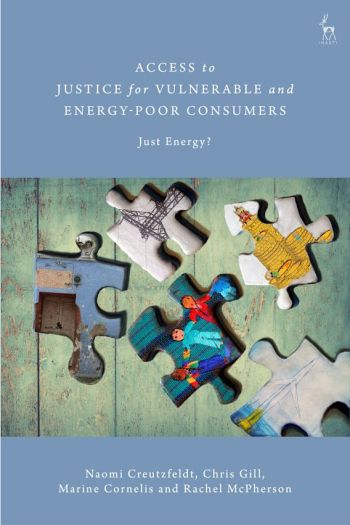We are now closed for the Christmas and New Year period, returning on Monday 5th January 2026. Orders placed during this time will be processed upon our return on 5th January.

How do ordinary people access justice? This book offers a novel socio-legal approach to access to justice, alternative dispute resolution, vulnerability and energy poverty. It poses an access to justice challenge and rethinks it through a lens that accommodates all affected people, especially those who are currently falling through the system. It raises broader questions about alternative dispute resolution, the need for reform to include more collective approaches, a stronger recognition of the needs of vulnerable people, and a stronger emphasis on delivering social justice.
The authors use energy poverty as a site of vulnerability and examine the barriers to justice facing this excluded group. The book assembles the findings of an interdisciplinary research project studying access to justice and its barriers in the UK, Italy, France, Bulgaria and Spain (Catalonia). In-depth interviews with regulators, ombuds, energy companies, third-sector organisations and vulnerable people provide a rich dataset through which to understand the phenomenon. The book provides theoretical and empirical insights which shed new light on these issues and sets out new directions of inquiry for research, policy and practice. It will be of interest to researchers, students and policymakers working on access to justice, consumer vulnerability, energy poverty, and the complex intersection between these fields.